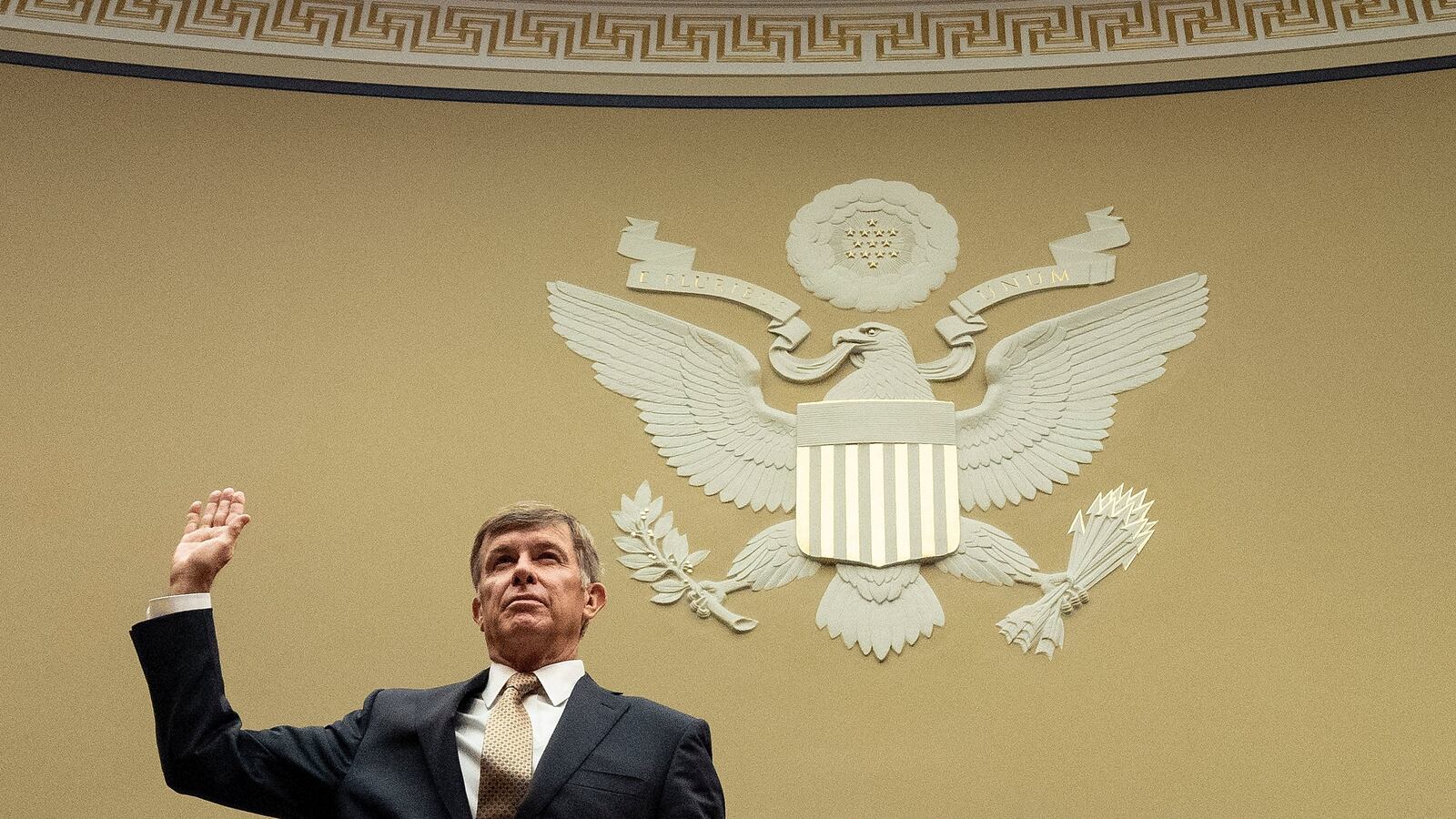U.S. intelligence agencies have stopped collecting cell-phone location data without a warrant on people inside the United States, the office of the director of national intelligence has affirmed.
But in a new letter to Sen. Ron Wyden (D-OR), sent on Nov. 12 and obtained by The Daily Beast, the office of the director of national intelligence stops short of affirming that a Supreme Court decision prevents them from acquiring the sensitive cell-location data pursuant warrantlessly under a key section of the Foreign Intelligence Surveillance Act (FISA). That provision, known alternatively as Section 215 of the PATRIOT Act and Title V of FISA, expires next month unless Congress actively reauthorizes it.
It’s the latest maneuver in a perennial clash between the intelligence agencies and their overseers over how tightly privacy laws constrain non-criminal surveillance, particularly as the ubiquity of surveillance-relevant technology advances.
Cell-phone location data effectively provides a map of a person’s whereabouts as their phone connects to nearby cellular towers. A landmark Supreme Court ruling last year, known as Carpenter v. U.S., held that cell-site location information, known as CSLI data, affects privacy to the point where the government must obtain a warrant based on probable cause of wrongdoing to collect it.
Carpenter provides “significant constitutional and statutory issues” for U.S. intelligence agencies, writes assistant director of national intelligence Benjamin T. Fallon. “Since Carpenter was decided,” U.S. intelligence “has not sought CSLI records or global positioning system records” under Section 215 of the PATRIOT Act—which permits them to collect records from third-party providers under a lower standard of evidence.
The Supreme Court decided Carpenter in June 2018.
Their “current practice of the government under FISA” is to collect that data under different provisions of FISA that are tied more directly to a specific target, “based upon probable cause,” Fallon wrote.
However, Fallon said, neither the Justice Department nor the intelligence agencies have “reached a legal conclusion” on whether Carpenter prevents them from getting cell-phone geolocation in an intelligence investigation under the lower “reasonable” standard set in Section 215.
Wyden, who wrote to ODNI about the applicability of Carpenter to intelligence collection in July, expressed dissatisfaction with the intelligence agencies for stopping short of averring that they’ll need probable cause to collect cell-phone geolocation information in all cases.
“The Intelligence Community has now publicly revealed that, since the Supreme Court decision more than a year ago, it hasn’t used Section 215 of the PATRIOT Act to track Americans,” Wyden said in a statement provided to The Daily Beast. “At the same time, the government is hedging its bets by not formally acknowledging that the Supreme Court case applies to intelligence surveillance. The Supreme Court has confirmed that tracking our movements without a warrant is unconstitutional.”
On Dec. 15, Section 215 of the 2001 PATRIOT Act is set to expire, along with a key measure of the 2015 USA FREEDOM Act permitting the collection of cellphone records.
The Daily Beast reported on Monday that key House committees will reauthorize the expiring business-records and two other PATRIOT provisions, but will kill the USA FREEDOM Act’s authority for collecting mass amounts of analyzed records of Americans’ call patterns. The NSA, citing technical problems, shut down that latter program and purged its trove of over half a trillion such “call detail records” after massively over-collecting them.
Fallon pointed out in his letter that the FREEDOM Act expressly excludes cell-phone geolocation or GPS information from authorized call-detail records collection.
“Now that Congress is considering reauthorizing Section 215, it needs to write a prohibition on warrantless geolocation collection into black-letter law,” Wyden said. “As the past year has shown, Americans don’t need to choose between liberty and security—Congress should reform Section 215 to ensure we have both.”
As well, members of the Congressional Progressive Caucus and the GOP’s House Freedom Caucus are uniting to press colleagues to “allow Section 215 and the two other expiring PATRIOT Act authorities to sunset” absent additional surveillance restrictions.
Among the reforms they seek is “preventing large-scale collection under the PATRIOT Act” and to “limit the types of information that can be obtained under PATRIOT Act authorities.” A forthcoming letter spearheaded by Reps. Pramila Jayapal (D-WA), Mark Pocan (D-WI), Andy Biggs (R-AZ) and Warren Davidson (R-OH), also obtained by The Daily Beast, explicitly references the Carpenter decision.
“Though that case dealt with local information, the Court’s reasoning in that case would apply equally to other types of sensitive digital data,” the letter reads.






